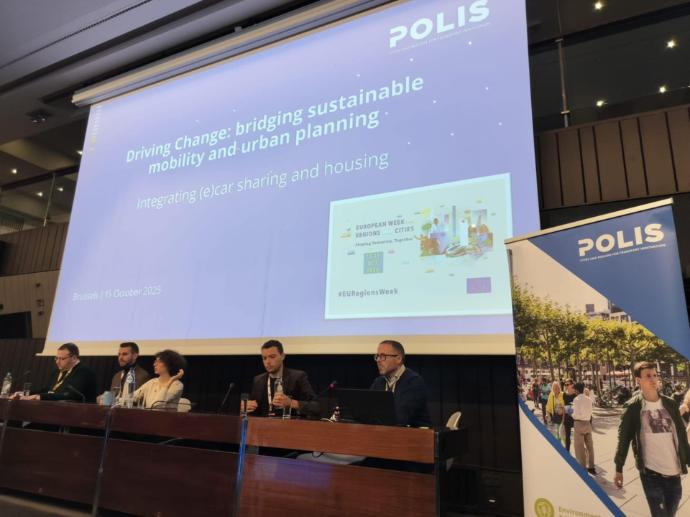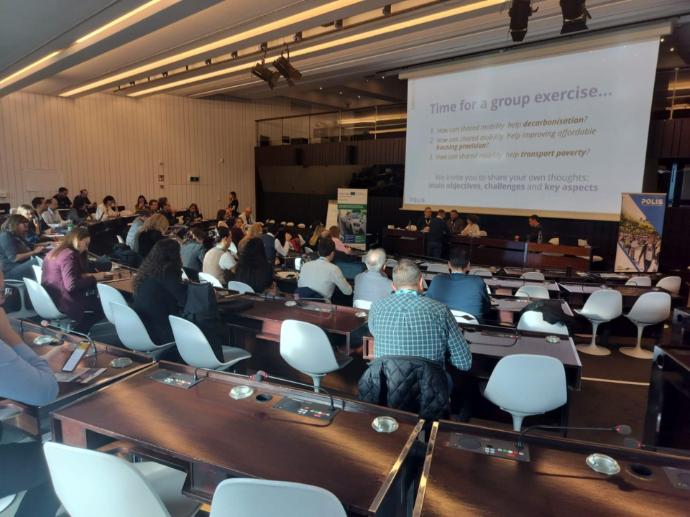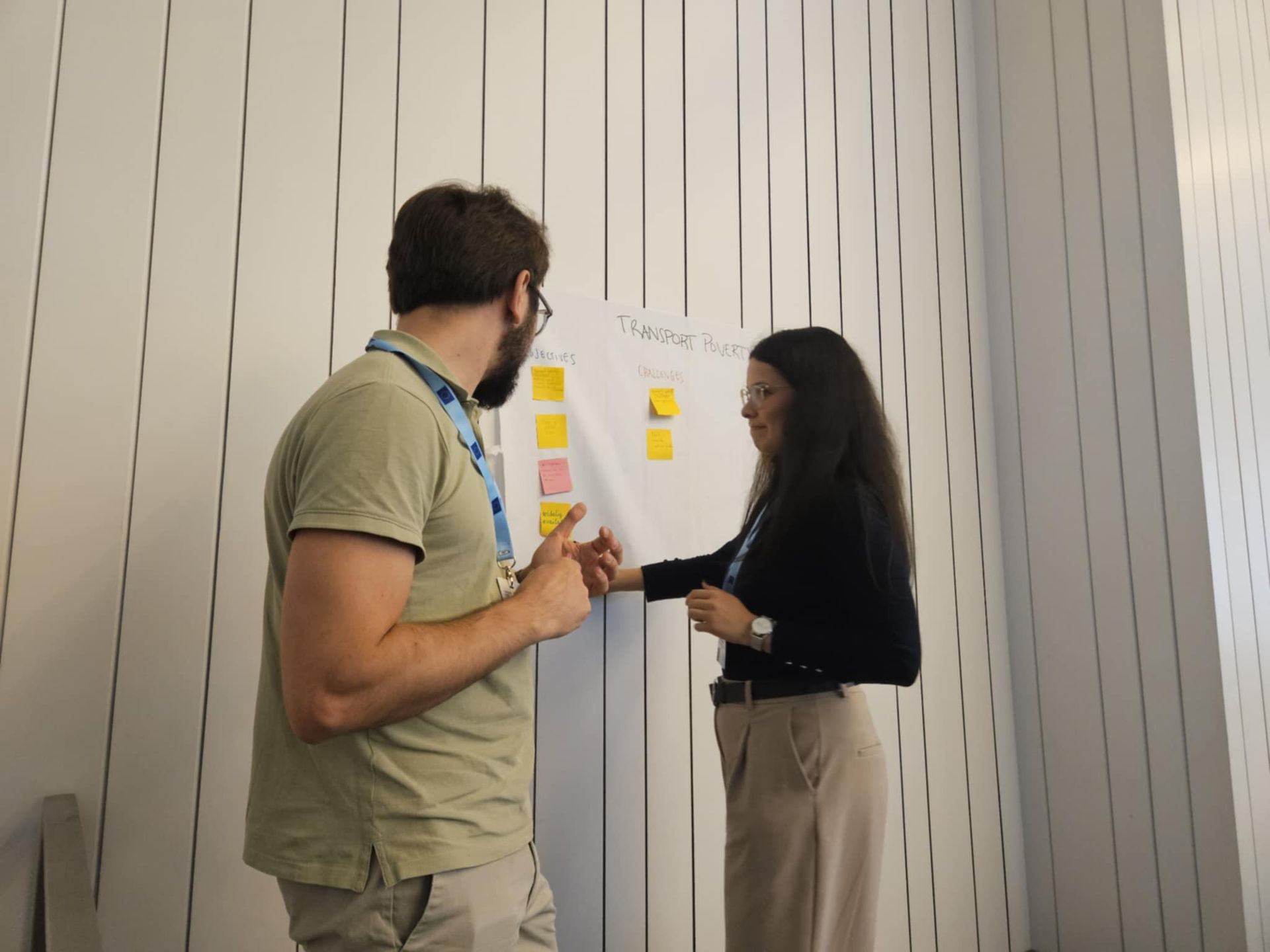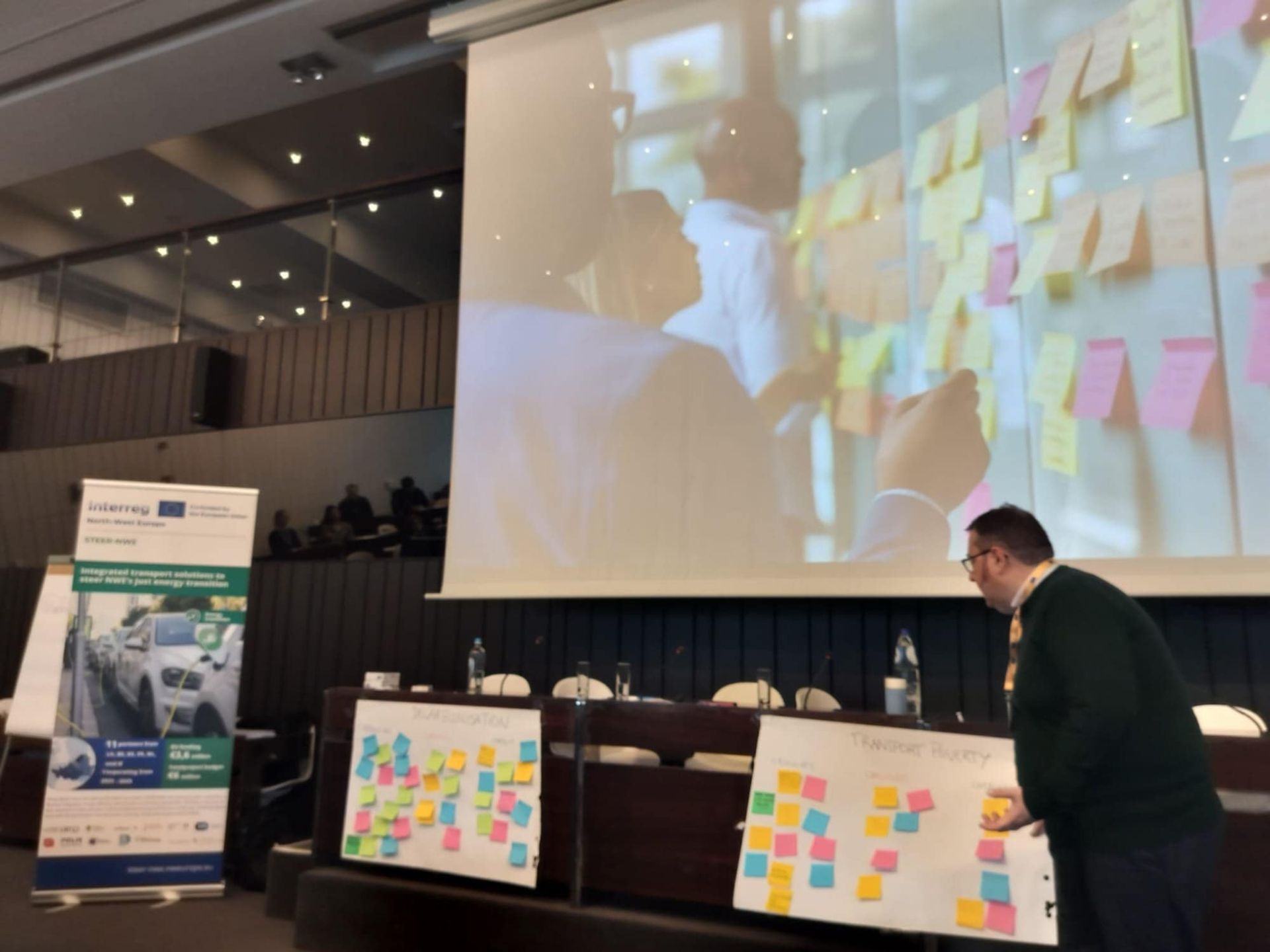On 15 October 2025, as part of the European Week of Regions and Cities, POLIS organised a workshop titled "Driving Change: bridging sustainable mobility and urban planning" with the Interreg projects STEER-NWE and Share North-Squared, to discuss and exchange on this topic, as well as listen to inspiring presentations and examples.


The event opened with an introduction to the topic of carsharing from Pedro Gomes (Polis Network), aimed at setting the scene and ensuring that all participants were fully aware. Afterwards, Ivo Cré (POLIS Network) moderated a panel session with an inspiring set of speakers, covering from the general (the importance of carsharing) to the more specific aspect (integration with housing), to the local (a concrete example from Brussels Region).
Why is carsharing important?
Bram Seeuws (Way to Go) presented some illustrated examples
of the impact of a shared car in usage space, reduced car ownership and
liveability. He highlighted the need for an unified definition of carsharing in
the EU, as well as explaining that even with pollutant and CO2
emissions associated, an ICE shared car is still a better option than private
ownership, as recently published in a study in Bremen. He also explained that electric
car sharing is not yet a popular option due to initial costs, charging needs
and also consumer preference - electrification of car sharing should not be
rushed, but go at same speed of the electrification of other fleets.
Not just about cars - mobility in public, cooperative and social housing
Clara Mafé (Housing Europe) presented some of the key EU
policy enablers of shared mobility and housing in the EU, as well as its
current limitations, given that there is no specific push for car sharing in
housing developments. However, this
could significantly help reducing housing costs: shared mobility means less
parking needs, which in turn result in less construction costs (10-20% in Sweden
social housing). Among other common principles, Clara highlighted that location
of vehicles is key, as well as support of local authorities. She also alerted
for the fact that social housing companies do not have the knowledge or legal
mandate to procure carsharing services, which means that to successfully
upscale pilot projects, public-private partnerships are key.
Pilot in action - shared electric cars in a social housing building
Harold Habousha (Brussels Environment) then presented a concrete example of this type of partnership, presenting a pilot project with Clem and Community Land Trust Brussels. Brussels Region, as part of their Green Deal on inclusive carsharing .The 12-month project consists of the availability of two electric vehicles (passenger car and van) that can be used by the 32 residents of a social housing building in the Brussels commune of Molenbeek. While the project has been successful and attracted a high level of interest from residents, profitability is an issue, and will require adding more people to the system - and opening to general public brings safety concerns, as this car sharing is installed in the building underground parking, currently only accessible to residents. Additionally, Harold alerted that when the project subsidy ends, users will have to pay for the full cost of the system.


After the presentations, participants were asked to contribute via a group exercise, sharing their thoughts on the main objectives, challenges and key aspects form their own contexts related to the following questions:
1. How can shared mobility help decarbonisation?
2. How can shared mobility help affordable housing provision?
3. How can shared mobility help transport poverty?
The inputs provided were quite valuable for the work of projects such as STEER-NWE, which aims to empower public authorities to develop integrated, energy-efficient, and inclusive electric carsharing approaches.
You can check the session slides here .